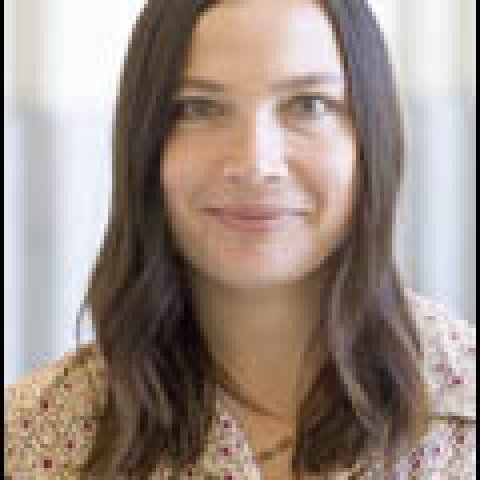Tomila Lankina
Former Fellow
Professional Affiliation
Professor, Department of International Relations, London School of Economics and Political Science
Expert Bio
I became interested in regional politics in 1991, the year of the USSR collapse. In 1988, I left Moscow to enter the Oriental Studies Department of the then Tashkent Lenin University. Three years later I found myself in a sovereign state, Uzbekistan, and in a school, which subsequently dropped the reference to Lenin and renamed itself after Mirzo Ulugbek, the grandson of the "Father of the Nation" Tamerlane. As someone who grew up in India, where my parents worked, and as a student of South Asia, I already possessed an interest in questions of self-determination, and the Central Asian ethnic upheavals fuelled it further. The officers at the hastily set-up United States Embassy in Uzbekistan—where I worked as protocol assistant while writing a thesis on the Urdu poet Mir Anis—encouraged me to study politics in America. At seminars at the Fletcher School, I learned further about the institutional determinants of regional and ethnic mobilization. This topic became the subject of a D.Phil. dissertation at Oxford. After I spent a year revising it while on a fellowship at Stanford, I developed it into a book.The book, Governing the Locals, focused on nationalist movements in Russia's republics. Ethnic mobilization was widespread in other parts of the former USSR, so it was puzzling that this was not the case in many Russian provinces, where the minority so-called "non-titular" groups were often discriminated against by the dominant "titular" regional regimes. Theories of ethnicity provided little explanation for the phenomenon, nor did those that focused on national level politics. Instead, I was struck by the importance of local institutions—the municipalities—in structuring ethnic mobilization. Seemingly unglamorous objects of study, these village and small town bodies provided the best explanation for non-mobilization. They also suggested fascinating conceptual ideas about state-society relations in Russia. Well into the late post-Soviet period, I found that the local bodies continued to exercise social control functions much like the Soviets did under the previous regime. Out of an earlier interest in nationalism grew a fascination with theoretical, political, and policy dimensions of decentralization. As a research fellow working on local government in Russia, Poland, the Czech Republic, and Hungary at the Humboldt University in Berlin, I found once again that sub-national governments could act as instruments for change, or, just as easily, impediments; that they might promote democracy, or, social repression. Some of the localities in Russia's northwest which I researched now find themselves at the frontier of the enlarged European Union. They have already forged close civil-society enhancing ties with their counterparts across the Union's border. These processes are part of the wider global trend of geographically proximate areas forming "natural" communities of interaction. These sub-national actors are also receptive to influences of other, non-regionally based players, be it foreign governments or NGOs. In the last decade, the recognition that these interactions may help develop islands of advancement in the progressively less democratic Russian state has encouraged both the EU and the U.S. to pursue targeted democracy-building efforts in the region. The impact of the "West" on Russia's northwest is the topic that I will pursue at the Woodrow Wilson Center. Drawing on research in Russia and interviews with policymakers in Brussels and Berlin already conducted, as well as on those to be conducted in Washington, D.C., I hope to measure the success of both the "natural" processes of the diffusion of western influences into the country's northwestern regions, as well as the targeted democracy-building efforts of the EU and the U.S., and to contribute to broader policy and academic debates on Western aid to Russia.
Education
B.A. (1993) Oriental Studies, Summa cum Laude, Tashkent Institute of Oriental Studies,
Uzbekistan; M.A., (1995) International Relations, The Fletcher School of Law and Diplomacy, Tufts University; D.Phil. (2001) Politics, University of Oxford, England
Subjects
Russia
Experience
- Senior Research Fellow, Institute for the Social Sciences, Humboldt University, Berlin, 2001-04
- Pre- and Postdoctoral Fellow, Center for International Security and Cooperation, Stanford University, 2000-01
- Expert Analyst, The European Union Election Project, TACIS, Moscow, 2000
- Program Associate, Open Society Institute, New York, 1995-96
- Protocol Assistant/Translator, United States Embassy to Uzbekistan, Tashkent, 1992-93
Expertise
Russian regional politics
Wilson Center Project
"The Impact of the "West" on Russia's Northwest"
Project Summary
The study examines the impact of western governmental and non-governmental aid efforts on regions of northwest Russia. It seeks to bridge political science scholarship which has largely focused on domestic factors affecting regional variations, with international relations approaches which have pointed to the increasing influence of external actors on Russia's frontier areas. It does so by examining specific policy and aid initiatives of the European Union and the United States in three distinct regions—Karelia, Pskov, and Novgorod. It also examines regional and federal level variables that, in interaction with external influences, may account for variations in regional developmental outcomes.
Major Publications
- Governing the Locals: Local Self-Government and Ethnic Mobilization in Russia (Lanham: Rowman & Littlefield, 2004)
- "President Putin's Local Government Reforms," Dynamics of Russian Politics: Putin's Reform of Federal-Regional Relations, Vol. 2, edited by Peter Reddaway and Robert Orttung, (Lanham: Rowman & Littlefield--forthcoming in December 2004))
- "Local Administration and Ethno-Social Consensus in Russia" Europe-Asia Studies 54, 7 (November 2002): 1037-53

